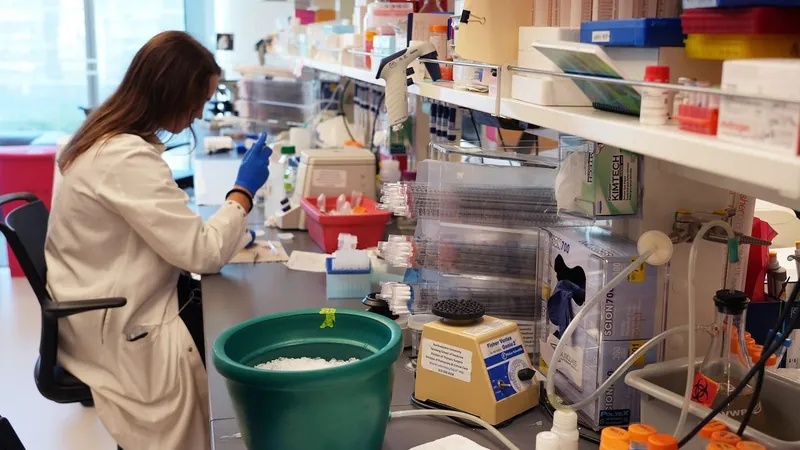
Surprising New Research: Severe COVID-19 Could Shrink Cancer Tumors!
2024-11-15
Author: Ming
Recent Research Findings
Recent research has unveiled astonishing findings that suggest severe COVID-19 infections might not just wreak havoc on the body, but could also lead to the shrinking of cancerous tumors. The study, published on November 15 in *The Journal of Clinical Investigation*, highlights how the immune response triggered by the COVID-19 virus can create specialized immune cells with anti-cancer properties.
The Role of Monocytes
The key to this remarkable phenomenon lies in a type of white blood cell known as monocytes. Typically, these cells are recruited to tumor sites, where cancer cells can manipulate them into supporting tumor growth. “It's like they build a fortress around the cancer cells,” explains Dr. Ankit Bharat, a leading thoracic surgeon at Northwestern Medicine. This fortress shields the tumors from being attacked by the body’s immune system, allowing them to flourish.
Tumor Shrinking Observations
However, the researchers observed an intriguing pattern among patients battling both severe COVID-19 and cancer: some saw their tumors shrink post-infection. This prompted the team to investigate the effects of severe COVID-19 on monocytes derived from blood samples of these patients. Notably, these monocytes exhibited a unique receptor that could latch onto specific sequences of COVID-19 RNA.
Mice Experiments
In a series of experiments involving mice with Stage 4 tumors—spanning melanoma, lung, breast, and colon cancers—the researchers administered a drug to induce monocyte activation, effectively mimicking the immune response prompted by a severe COVID-19 infection. Encouragingly, they found that the tumors in these mice began to shrink as the activated monocytes migrated toward the tumor sites. Rather than being co-opted by cancer cells, these monocytes transformed into aggressive cancer-fighting agents that activated natural killer cells to pursue and destroy the tumors.
Potential for Human Treatment
Dr. Bharat asserts that this mechanism may also work in human subjects, opening the door to new treatments for various cancers. "By adjusting this pathway, we keep monocytes from becoming cancer-supportive cells," he emphasized. While existing COVID-19 vaccines are unlikely to trigger this beneficial immune response—lacking the specific RNA sequence involved—there's potential for future vaccines and therapies to be designed with these anti-cancer properties in mind.
Significance of the Research
The implications of this research are significant, particularly for advanced cancers that have been resistant to conventional treatments like immunotherapy. Current immunotherapy approaches can yield effective results in just 20% to 40% of cases and often struggle when the body cannot produce enough functioning T cells to combat cancer. Dr. Yibin Kang from Princeton University highlights the promise of this new mechanism, as it could provide a novel way to eliminate tumors without relying solely on T cell immunity.
Need for Clinical Trials
While these findings are groundbreaking, the scientific community underscores the need for clinical trials to determine whether this immune pathway can be successfully leveraged in human cancer patients. If effective, this discovery might revolutionize cancer treatment and provide new hope for thousands battling the disease. Stay tuned for more developments in this exciting area of research!


 Brasil (PT)
Brasil (PT)
 Canada (EN)
Canada (EN)
 Chile (ES)
Chile (ES)
 España (ES)
España (ES)
 France (FR)
France (FR)
 Hong Kong (EN)
Hong Kong (EN)
 Italia (IT)
Italia (IT)
 日本 (JA)
日本 (JA)
 Magyarország (HU)
Magyarország (HU)
 Norge (NO)
Norge (NO)
 Polska (PL)
Polska (PL)
 Schweiz (DE)
Schweiz (DE)
 Singapore (EN)
Singapore (EN)
 Sverige (SV)
Sverige (SV)
 Suomi (FI)
Suomi (FI)
 Türkiye (TR)
Türkiye (TR)